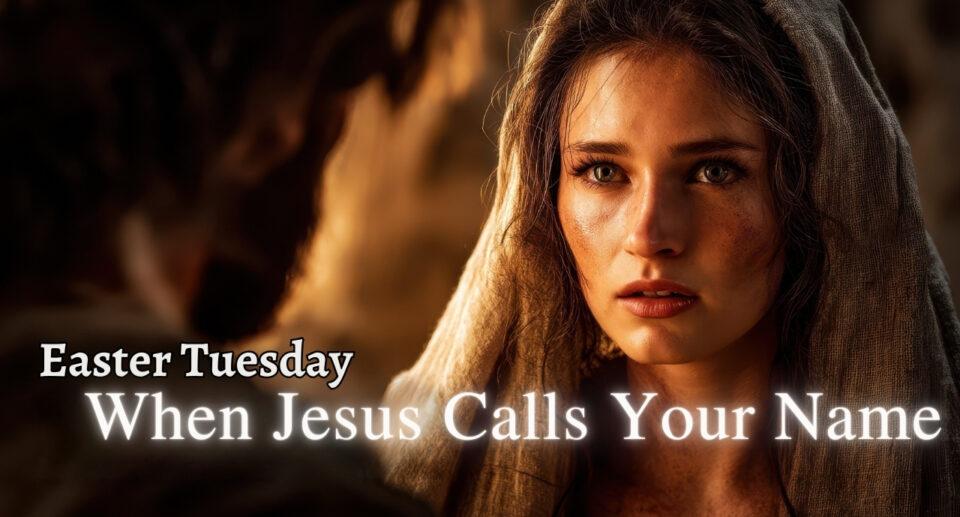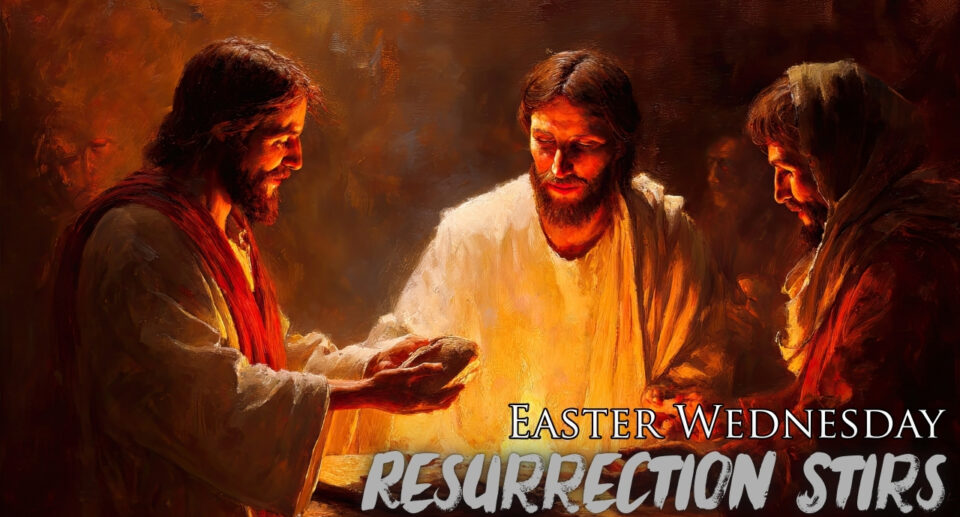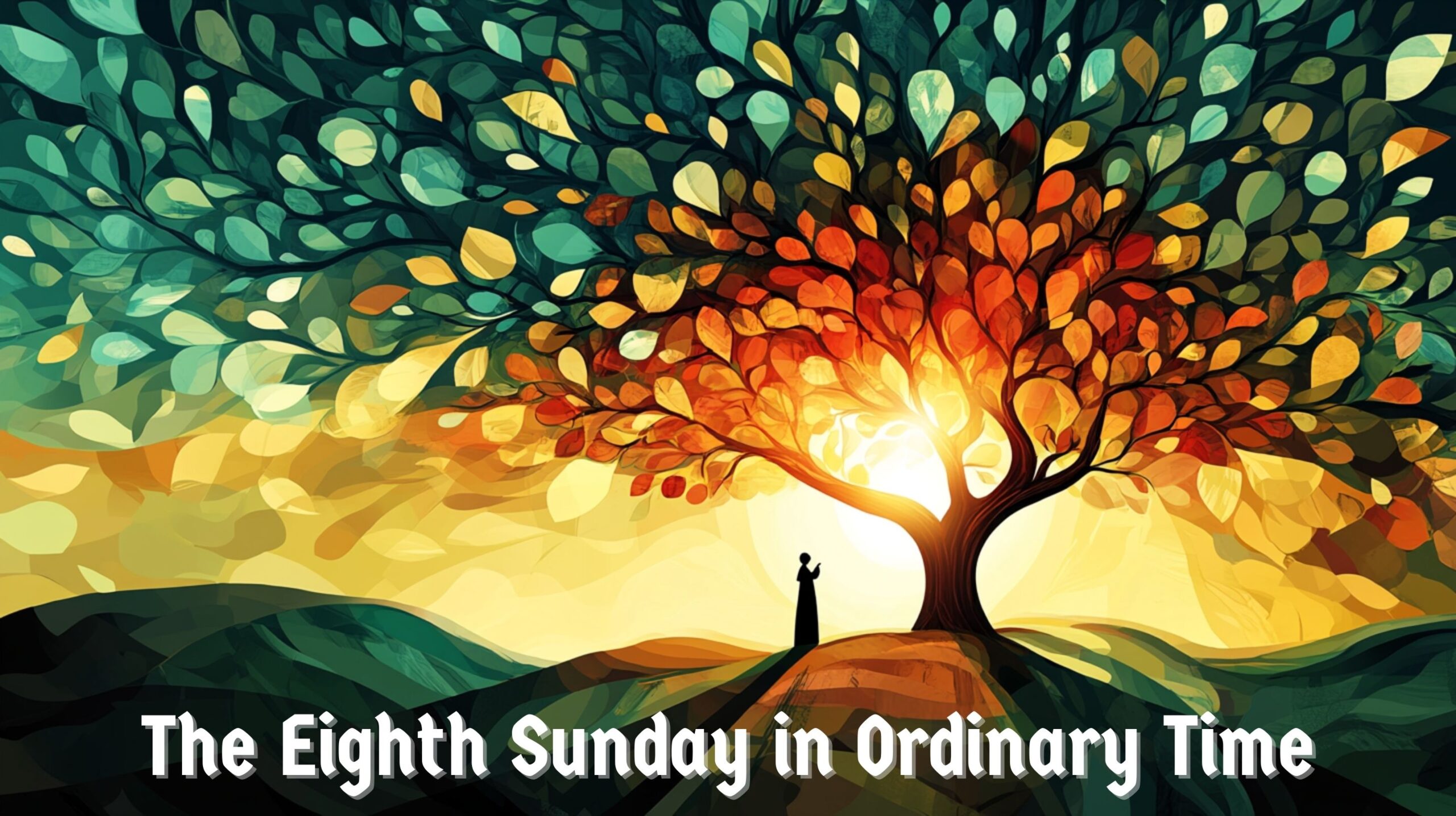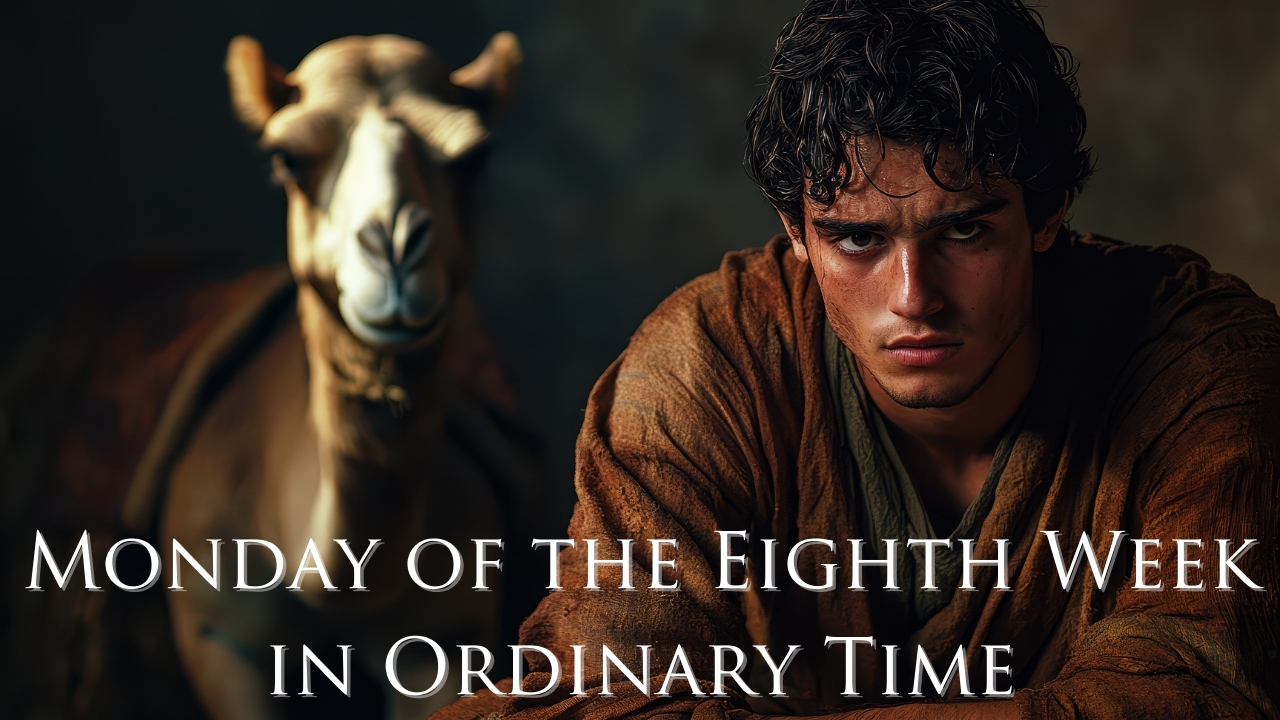From Tears to Testimony: When Jesus Calls Your Name | Easter Tuesday Readings | April 22, 2025

Mary stood weeping outside an empty tomb until everything changed with a single word: “Mary.” Her journey from grief to recognition to mission reveals the pattern of authentic Easter faith.
Through this reflection, you’ll discover:
- Why mistaking Jesus for “the gardener” speaks to our own spiritual blindness
- How hearing Christ call your name transforms everything
- When personal encounter becomes public testimony
- Why the question “What shall we do?” remains our essential response to resurrection
Readings covered: Acts 2:36-41; Psalm 33; John 20:11-18
#EasterOctave #MaryMagdalene #ResurrectionEncounter #PersonalFaith #EasterTuesday
From Tears to Testimony: When Jesus Calls Your Name
Mary stood weeping outside the tomb.
Not running like Peter and John, who came and went. Not hiding like the other disciples behind locked doors. Just standing. Weeping. Refusing to leave despite the danger, despite the apparent finality of death.
Sometimes the deepest faith looks like simple staying put when everyone else has moved on. Sometimes the greatest courage is shown not in dramatic action but in tearful presence.
“They have taken my Lord away,” she tells the angels, “and I don’t know where they have put him.”
Then she turns and sees a figure who asks, “Woman, why are you crying? Who is it you are looking for?”
Thinking he’s the gardener, she says, “Sir, if you have carried him away, tell me where you have put him, and I will get him.”
Her devotion is staggering. A lone woman offering to carry away a man’s corpse—an impossible task physically and ritually. But love doesn’t calculate impossibilities.
Then everything changes with a single word.
“Mary.”
Her name. Spoken in that voice. The one she thought silenced forever.
She spins around. “Rabboni!”
In that moment of recognition, death’s apparent victory crumbles. The impossible becomes experience. Grief transforms into astonished joy.
Jesus gives her a mission: “Go to my brothers and tell them…”
And Mary Magdalene, once possessed by seven demons, becomes the first apostle to the apostles, the initial witness sent to proclaim, “I have seen the Lord!”
If John’s Gospel ended here, with this intimate garden encounter, it would be enough. The entire Easter mystery distills into this moment—from tears to testimony, from mistaken assumptions to recognition, from grief to mission.
Our other readings reveal how this personal encounter expands into world-changing movement.
In Acts, Peter stands before the Jerusalem crowd proclaiming what Mary discovered at the tomb: “God has made this Jesus, whom you crucified, both Lord and Messiah.”
His words pierce hearts. The crowd asks the question that echoes through history: “What shall we do?”
Peter’s answer is clear: “Repent and be baptized, every one of you, in the name of Jesus Christ for the forgiveness of your sins. And you will receive the gift of the Holy Spirit.”
Three thousand respond that day, beginning the cascade of conversion that continues today. The community founded on the testimony of a weeping woman and a formerly fearful fisherman explodes into existence.
Meanwhile, our psalm celebrates the God behind these events: “The earth is full of the goodness of the LORD.” This isn’t blind optimism but clear-eyed recognition that even in a world still marked by suffering, divine mercy actively unfolds. “The LORD brings to nought the plans of nations… but the plan of the LORD stands forever.”
The resurrection reveals whose plan ultimately prevails.
What might these readings say to us today?
Mary’s story speaks to anyone experiencing loss or disappointment. When hopes die and dreams are buried, we often mistake Jesus for the gardener—missing his presence because he doesn’t appear as we expect. We search for answers while the Answer seeks us. We analyze evidence while overlooking Presence.
Then he speaks our name.
This moment of personal recognition changes everything. Christianity isn’t primarily about doctrine, moral codes, or religious practices. At its heart, it’s about encounter—Christ calling our name and our startled recognition of his living presence.
Sometimes this happens dramatically, like Paul’s Damascus road experience. More often it unfolds gradually, like the Emmaus disciples’ slow-burning realization as scripture is explained and bread is broken. But whether sudden or gradual, Easter faith begins with personal encounter.
Have you heard him call your name? In prayer’s silence? Scripture’s wisdom? A friend’s kindness? A stranger’s need? Creation’s beauty? The Eucharist’s mystery?
The question that haunted Mary—”Where have they put him?”—haunts our culture too. Where is Jesus amid suffering, injustice, and seemingly unanswered prayer? Mary discovered him present but unrecognized, standing beside her tear-streaked confusion. The one she sought was seeking her.
Once recognized, Jesus gives Mary a mission—not to cling to private spiritual experience but to “go and tell.” Encounter propels toward announcement. Personal connection expands to community transformation.
Peter’s Pentecost preaching shows how individual testimony creates collective movement. Those pierced by resurrection news ask the only question that matters: “What shall we do?” The answer remains unchanged: Turn around (repent). Be immersed in Christ (baptism). Receive divine life (the Spirit).
Three thousand that day experienced what Mary discovered in the garden—not just information about Jesus but transformation through encounter with him. This remains God’s pattern. As the psalm declares, “The LORD looks down from heaven and sees all mankind.” Divine attention remains personal, specific, and transformative.
Today, even as we read these ancient accounts, Jesus still steps into our gardens of grief, stands beside our tear-streaked questions, and calls our name. We too might mistake him for the gardener, the helpful stranger, the unnecessary interruption—until he speaks and we finally see.
Then we face Mary’s choice. Will we cling to our limited understanding of him? Or will we accept the mission to go and tell others?
The psalm offers assurance for this undertaking: “Our soul waits for the LORD; he is our help and our shield. May your kindness, O LORD, be upon us; who have put our hope in you.”
As Easter unfolds this week, may we have Mary’s courage to stay present to our deepest questions, her openness to recognize Jesus in unexpected forms, and her willingness to move from personal encounter to public testimony.
For the one who calls our name is the one who conquered death. And that changes everything.






